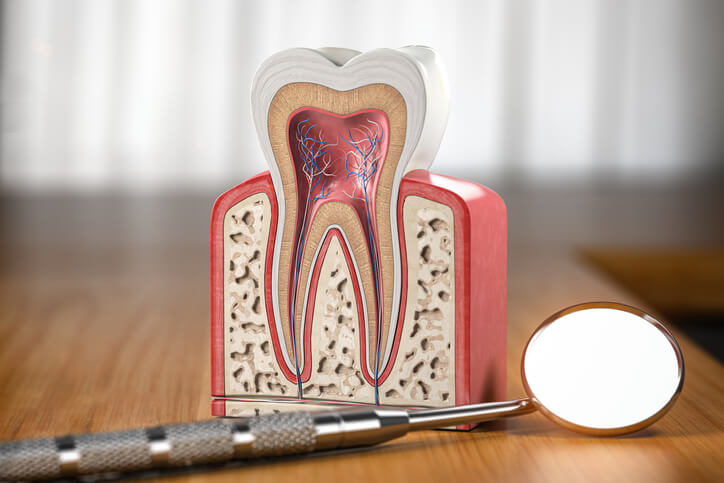Periodontal disease, also called gum disease, is a serious oral health condition that takes good oral hygiene and routine dental care to prevent. Once the early signs of periodontal disease appear, dental deep cleaning can provide a straightforward and effective intervention
What causes periodontal disease?
Gum disease is caused by the buildup of bacteria in your mouth. Everybody has bacteria in their mouth, and they can cause both gum disease and tooth decay when they grow out of control. Regular brushing and routine dental cleanings help manage these bacteria, but further intervention is sometimes needed.
As bacteria grow and infect the gum tissue, they can cause pockets to form between your gums and teeth. These pockets let the bacteria penetrate deeper below the gum line, where they are protected from regular brushing and routine dental cleaning. Unless action is taken, patients can progress to the next stages of periodontal disease — losing teeth and suffering other negative outcomes.
What is dental deep cleaning?
A dental deep cleaning is an early intervention for periodontal disease that targets bacteria below the gumline. The treatment removes bacteria and makes it more difficult for new bacteria to take hold below the gumline. This can greatly reduce the risk of gum disease progressing.
Your dental deep cleaning will include two independent treatments that are performed during the same visit — scaling and root planing.
During the scaling treatment, your dentist uses special tools to reach deep within the pockets where bacteria are gathering. Bacteria eventually harden into deposits called plaque and tartar, which is what the dentist scrapes from the surface of your teeth during routine cleaning.
Scaling does the same for deposits within the pockets that routine dental cleaning tools can’t reach. With the plaque and tartar removed, the risk of further periodontal disease and tooth decay is reduced. However, those deposits could form again in the future.
To prevent this from happening, dental deep cleaning also includes root planing. This treatment uses a different set of tools to smooth the surface of your teeth in the affected area.
Plaque and tartar take hold more effectively on rough surfaces with plenty of nooks and crannies for bacteria to grow in. With the smooth surface provided by root planing, it is much more difficult for gum disease to take hold and start progressing again.
What can you do after deep cleaning?
After deep cleaning, maintaining a good oral hygiene routine is the best thing you can do to prevent further periodontal disease. Brush twice a day, remember to floss, and avoid excessively sugary foods and drinks if possible.
Keeping up with routine dental exams and cleanings is just as important. Cleanings remove plaque and tartar, preventing their accumulation and spread. Dental exams will let your dentist identify any potential signs of gum disease that may require further treatment.
If the periodontal disease does start progressing again, you may need another deep cleaning. Beyond that, there are further treatment options for more advanced cases of periodontal disease.
You may require flap surgery if the condition continues to worsen. Also called pocket reduction surgery, flap surgery carries out scaling and root planing more deeply than before. Gum contouring is another common treatment for gum disease.
Take Charge of Your Gum Health
Have you noticed early signs of gum disease — bad breath or swollen or sore gums? Cohen Dental Care can determine the best course of treatment for you, including dental deep cleaning. We serve patients throughout Great Neck and Briarwood. Contact our team at Cohen Dental Care to book an appointment and learn more about your treatment options.

